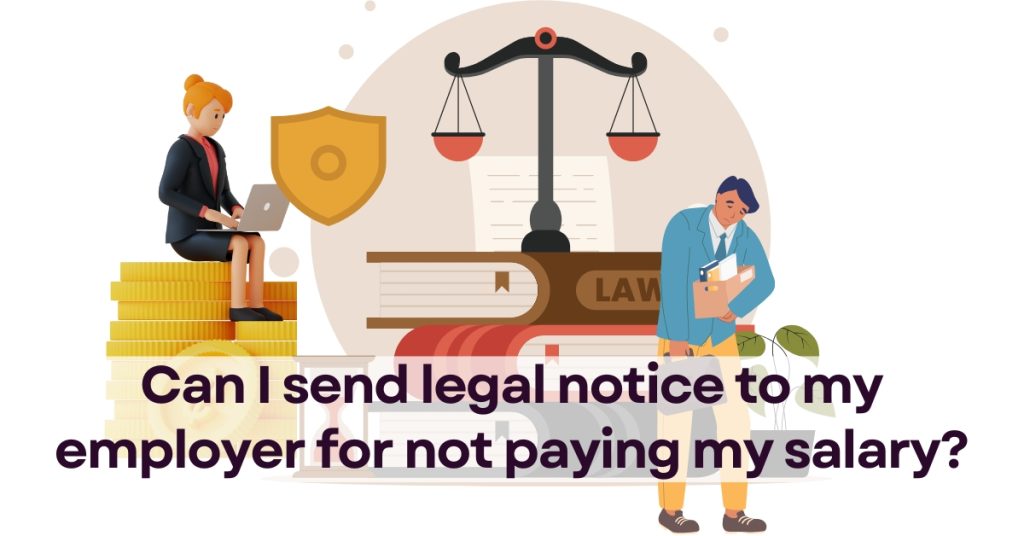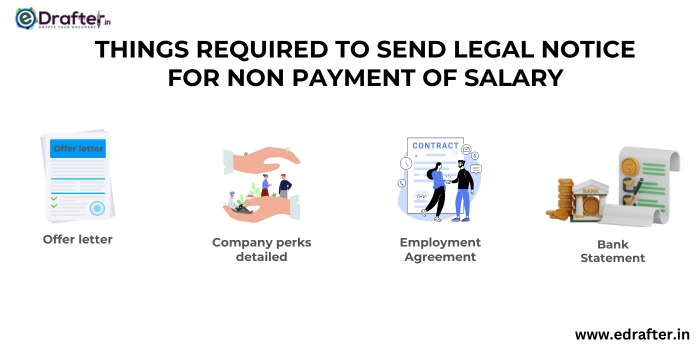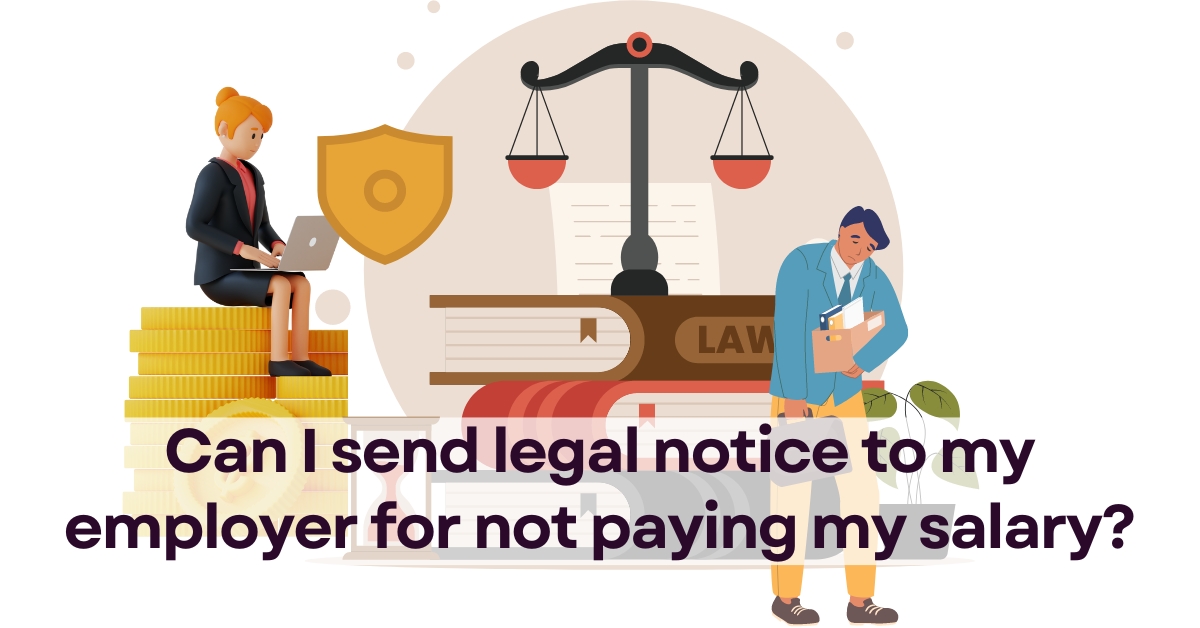
Table Of Content
- Is Non Payment of salary a criminal Offense?
- What is the labour law for salary delay in India?
- What legal actions can I take against a company for non payment in India?
- Do I need any documents to send a legal notice for non payment of salary?
- How to send a legal notice to a company for not paying my salary?
- Conclusion
When a company defaults on its compensation obligations, it can put employees in a difficult financial situation. Sending a Legal notice to the business to assert your rights and request recovery of the unpaid sum becomes a feasible alternative in such circumstances. There are many scenarios where the employer is not paying salary to their employee.
Workers are legally entitled to timely salary payments as specified in their employment contracts. Employees may use legal action to enforce their rights in the event that employers fail to uphold this contractual duty. Legal Notice for non payment of salary is sent by the employee as an official letter informing the employer of the non-payment and stating that, should the matter not be resolved, the employee intends to take legal action.
Is Non Payment of Salary a Criminal Offense?
The employer is responsible for making sure the employee receives their salary on schedule. The employee may, however, bring a criminal complaint for deceit and breach of trust under Section 420 of the Indian Penal Code if he disputes, declines, or neglects to comply. Employees may initiate a lawsuit under the Negotiable Instruments Act of 1881 if their employer paid their salary by cheque that bounced and then refused to issue another one.
What is the Labour Law for Salary delay in India?
According to the labour law for salary delay in India under the Payment and Wages Act 1936 but came into force on 28th March 1937 in the whole country, it is the employers duty to not delay the employees salary. If not able to do so the Employee claims the right to send legal notice to employer for non payment of salary. The Act applies on working sectors but the main target of this Act are the industrial labours who aren’t paid enough. This Act also helps the employees to seek their rights if their are unnecessary deductions in their salaries.
What legal actions can I take Against a Company for Non Payment in India?
The instant legal action against a company for non payment in India that an employee can take is sending a legal Notice. Under Section 415 of the IPC, you can report your employer or the company’s owner for fraud. According to the Indian Contract Act, this is also a breach of contract, and you should sue the business civilly to get your money back.
There are two general ways to recover money or salary in any situation which people may adopt, those are as follows:
Civil Procedure Code 1908
- The party seeking to reclaim their money is granted this authority, according to Order 37 of the Civil Procedure Code. This ruling enables a creditor to bring a simple case. This ruling is thought to be a quicker trial because it comes after the summons and lawsuit were filed.
- The defendant has just ten days to respond to the case. If the defendant is not present, the court will consider the plaintiff’s allegations to be true. The defence can successfully refute the plaintiff’s argument if it can provide witnesses and withstand the cross-questioning from the court of law.
- The plaintiff will not be compensated if the court determines that the defendant did not accept the credit; however, if the plaintiff can demonstrate that the defendant did accept the credit and failed to return it, then he will be getting back the money for the damages incurred by the plaintiff. The same goes with the employee employer case after sending the legal notice to the employer for non-payment of gratuity or salary.
If you are an employer, you should be aware of legal action you can take against the employee for not serving the notice period.
Negotiable Instrument Act 1881
The employee can file a case against the employer under the Negotiable Instrument Act 1881. The employee can send a legal notice to a company not paying salary and under section 138 of the NI Act can sue the employer or company for delaying the salary payment or not paying the salary.
Do I need any documents to Send a Legal Notice for Non Payment Of Salary?
The documents that an employee will need in order to send a Legal Notice against an employer for not paying salary are mentioned below:

- Offer letter received from the Company/employer.
- Benefits and perks provided by the company/employer in detail.
- A duplicate of the employee-employer employment agreement.
- A copy of the bank statement as proof that the worker was not paid on the scheduled date.
How to Send a Legal Notice to a Company For Not Paying my Salary?
You can directly place an order through our website to get your draft of the Legal Notice for non payment of salary. Now everyone is switching to digital platforms and adopting the paperless process. For the easy and apt procedure, the steps are as follows:
- Visit www.edrafter.in to sign up for our legal notice service from the menu section.
- You will be contacted by our advocate to discuss the writing of a legal notice.
- Provide the Advocate with all important information without missing any details.
- Your registered email address will receive a draft of the notice from our advocate for approval.
- Examine the legal notice to identify any errors that should be fixed.
- You can email the legal notice to the party at wrong and continue with the process once the necessary modifications have been completed!
Before sending a legal notice to the party, you need to understand the difference between a legal notice and a court notice.
Conclusion
The Government of India has made many ways for an employee to pursue a number of legal avenues in order to obtain their pay or earnings back. First, we advise sending a formal notice from a reputable attorney with experience handling similar cases. Indian Labour law for salary delay in India that addresses the problem of non-payment of wages or salary of employees and seeks justice for them. For faster service to get your Legal Notice you can avail our service at the best prices.


